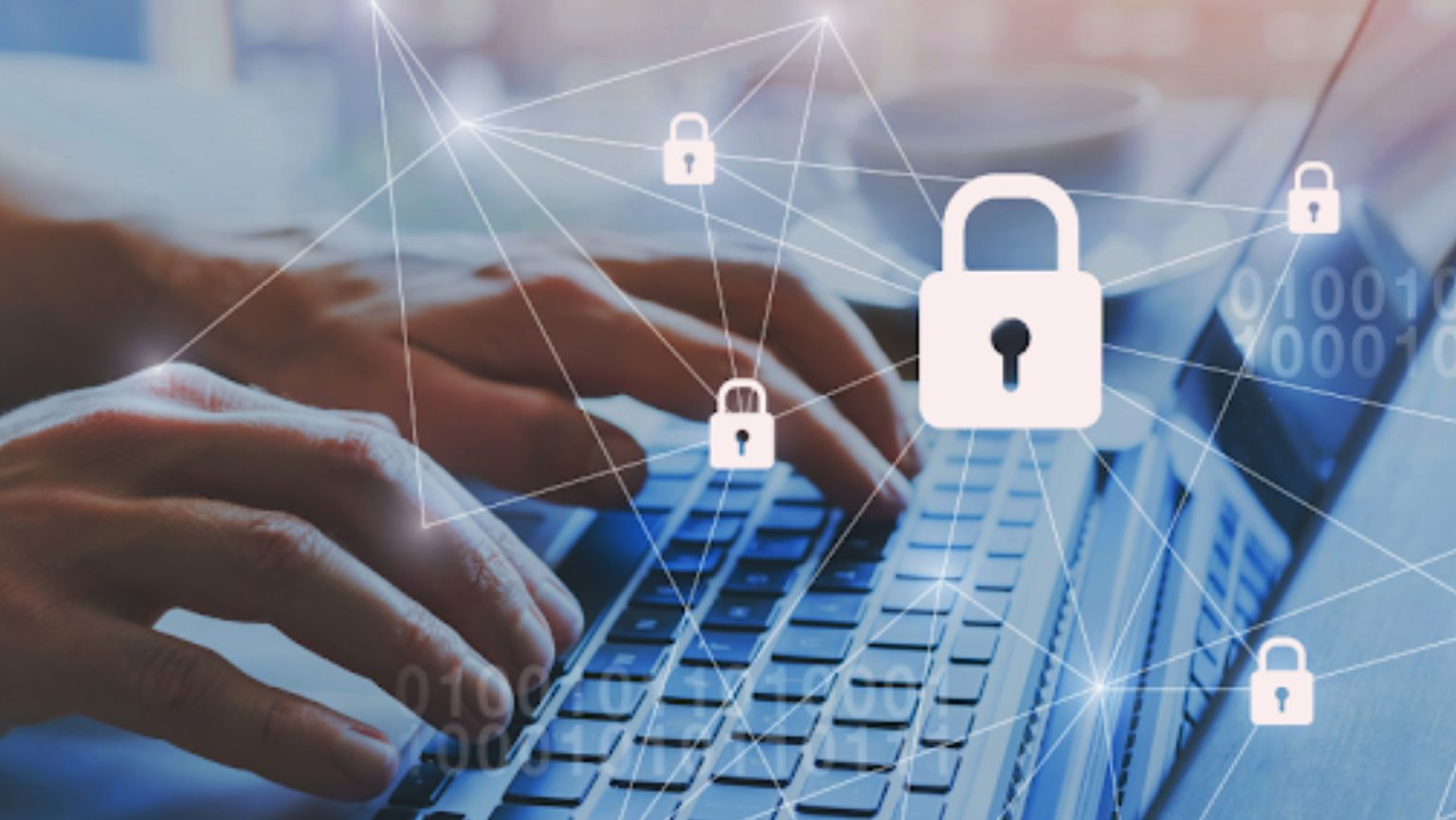Legal Virtual Assistants and Data Security: What Law Firms Need to Know
Key Takeaways –
- Implement robust data security practices when working with Legal Virtual Assistants to protect sensitive client information.
- Adhere to US data protection laws and ethical standards to build trust and avoid legal risks.
- Leverage advanced technologies like VPNs, encryption, and access control to enhance data protection and operational efficiency.
Legal Virtual Assistants (LVAs) are transforming how law firms manage their operations. From streamlining administrative tasks to providing specialized support, LVAs have become an essential resource for legal professionals seeking efficiency and flexibility in a competitive industry.
As law firms increasingly rely on LVAs to handle sensitive responsibilities, the importance of robust data security measures cannot be overstated. The legal sector deals with highly confidential information, and ensuring its protection is a matter of compliance and a cornerstone of client trust.
At ABC Marketing Services, we understand law firms’ unique challenges when integrating virtual assistants into their workflows. By prioritizing data security and effective management, we help legal practices maintain their professional integrity while leveraging the full benefits of LVAs.
This article will explore the critical role of LVAs in modern law firms and highlight best practices for safeguarding sensitive data in an increasingly digital landscape.

What Are Legal Virtual Assistants?
Legal Virtual Assistants (LVAs) are remote professionals who provide specialized administrative and legal support to law firms. Let’s take a closer look at what LVAs do and how they can benefit law firms.
Key Roles and Responsibilities
Legal Virtual Assistants play a vital role in supporting law firms by handling essential tasks that keep operations running smoothly. Their key responsibilities include:
- Managing legal documentation: Organising, drafting, and maintaining important legal files to ensure accuracy and accessibility.
- Scheduling and calendar management: Coordinating appointments, court dates, and deadlines to keep workflows on track.
- Client communication and case follow-ups: Acting as a reliable point of contact for clients, providing updates, and ensuring timely responses.
Advantages of Using LVAs
Leveraging Virtual Legal Assistants offers several advantages that make them an attractive solution for law firms. These include:
- Cost-effectiveness compared to in-house staff: Reduce overhead costs by outsourcing tasks without compromising quality or efficiency.
- Access to specialized skills on-demand: Benefit from experienced professionals with expertise tailored to meet your firm’s specific needs.
- Flexibility and scalability for growing practices: Easily adjust support levels to match workload demands, ensuring your firm can adapt and grow seamlessly.
Understanding Data Security in Legal Practices
Data security is a critical concern for law firms, given the sensitive and confidential nature of the information they handle. Ensuring robust protections against breaches and unauthorized access controls is essential for maintaining client trust and upholding professional standards.
By understanding the types of confidential data at risk, legal practices can take proactive steps to safeguard their information and protect their reputation.
Types of Sensitive Information at Risk
Client Case Files
Client case files contain a wealth of personal and confidential details, ranging from financial records and legal histories to sensitive personal matters. A breach of this information could have far-reaching consequences, including identity theft, financial fraud, or compromised legal proceedings.
Protecting client case files is not only a legal and ethical obligation but also critical for maintaining a law firm’s reputation as a trusted partner.
Contracts and Agreements
Contracts and agreements form the backbone of legal transactions, often involving sensitive terms, financial details, and proprietary information. Unauthorized access or tampering with these documents could lead to serious legal disputes, financial losses, or damaged business relationships.
By implementing strong data security measures, law firms can safeguard these critical assets and ensure clients feel confident in their ability to handle complex agreements securely.
Intellectual Property and Trade Secrets
For firms working with corporate clients, intellectual property and trade secrets are among the most valuable assets they manage. These assets can include product designs, marketing strategies, and patented processes, which are essential for maintaining a competitive edge.
A data breach exposing such information could lead to significant financial losses, reputational damage, or even the collapse of a client’s business. This underscores the importance of stringent security protocols to protect these highly sensitive resources.
Consequences of Data Breaches
The consequences of data breaches for law firms can be severe, impacting both their operations and long-term viability. Non-compliance with data protection laws, such as the General Data Protection Regulation (GDPR) or local privacy statutes, can result in hefty fines and legal penalties.
Beyond the immediate legal implications, breaches often lead to significant financial losses, including the costs of remediation and potential lawsuits from affected clients. Perhaps most damaging is the erosion of a firm’s reputation and client trust.
Legal practices rely on their clients’ confidence in their ability to protect sensitive information, and a breach can severely undermine this trust, leading to a loss of clients and difficulty attracting new business.
Proactively addressing data security is essential to mitigating these risks and maintaining a strong, trustworthy reputation.

Best Practices for Data Security When Working with LVAs
Selecting the Right Virtual Assistant Provider
When working with Legal Virtual Assistants (LVAs), selecting the right provider is the cornerstone of ensuring data security. A thorough vetting process should include background checks to verify the assistant’s credentials, experience, and reliability.
This step helps to minimize risks and ensures that the chosen professional can handle sensitive information responsibly.
It’s equally important to confirm that the provider complies with relevant data protection regulations, such as GDPR or HIPAA, depending on the jurisdiction and nature of the firm’s operations.
By partnering with a trusted and compliant provider, law firms can mitigate potential vulnerabilities while benefiting from the efficiencies and expertise that LVAs bring to the table.
Implementing Secure Communication Channels
Implementing secure communication channels is vital for protecting sensitive information when working with Legal Virtual Assistants (LVAs).
Encrypted email and messaging platforms ensure that all communications remain private and inaccessible to unauthorized parties, reducing the risk of data breaches during day-to-day exchanges.
Similarly, secure document-sharing methods, such as using password-protected files or dedicated cloud storage solutions with robust security features, safeguard confidential legal documents.
By prioritizing secure communication practices, law firms can maintain the confidentiality of their data while collaborating efficiently with LVAs.
Setting Clear Policies and Agreements
Setting clear policies and agreements is essential to maintaining data security when working with Legal Virtual Assistants (LVAs).
Drafting thorough confidentiality agreements and non-disclosure agreements (NDAs) ensures that all parties understand their obligations to protect sensitive information.
These agreements provide a legal framework for accountability and safeguard against potential misuse of client data. Additionally, specifying data access levels based on the assistant’s tasks is crucial.
By granting only the necessary permissions for each role, law firms can minimize exposure to sensitive information, reducing the risk of accidental breaches or misuse. Clear, well-defined policies establish a foundation of trust and professionalism in the collaboration.
Regular Training and Updates
Regular training and updates are critical for maintaining a secure working environment with Legal Virtual Assistants (LVAs).
Educating LVAs about the latest cybersecurity threats, such as phishing scams or malware attacks, equips them with the knowledge to identify and respond to potential risks effectively.
Providing ongoing resources and communication tools, such as access to security software or updates on best practices, ensures they remain proactive in preventing breaches.
Continuous training not only enhances the assistant’s ability to safeguard sensitive data but also reinforces a culture of security within the law firm, fostering greater confidence in the partnership.
Tools and Technologies to Enhance Data Security

Leveraging the right tools and technologies is essential for law firms to protect sensitive information when working with Legal Virtual Assistants (LVAs). By implementing advanced security measures, firms can minimize risks and maintain the confidentiality and integrity of their data.
Recommended Cybersecurity Software
Investing in robust cybersecurity software is a foundational step toward safeguarding sensitive legal information. Tools such as virtual private networks (VPNs) ensure secure and private internet connections, reducing exposure to external threats.
Similarly, end-to-end encrypted file-sharing services enable the safe transfer of documents, preventing unauthorized access during the exchange. Incorporating these technologies into daily workflows enhances overall data protection and builds a more secure working relationship with LVAs [1].
Data Encryption and Backup Solutions
Data encryption is a critical component of a law firm’s security strategy, ensuring that sensitive information remains unreadable to unauthorized users, even in the event of a breach. Coupled with regular backups to secure cloud-based systems, encryption provides a dual layer of protection.
These measures not only guard against data loss but also facilitate quick recovery, minimizing downtime, and safeguarding client trust in the face of potential cybersecurity incidents.
Access Management Tools
Access management tools, such as role-based access control (RBAC), are essential for maintaining tight control over sensitive information. By assigning access permissions based on specific tasks, firms can limit data exposure and reduce the risk of internal breaches.
Monitoring activity logs for unusual behavior further strengthens this approach, providing visibility into how and when data is accessed. These digital tools ensure a secure and accountable environment, supporting a firm’s overall data security efforts.
Legal and Ethical Considerations
Navigating the legal and ethical landscape is essential for law firms hiring a Virtual Assistant. Adhering to compliance requirements and upholding ethical standards ensures client trust and protects the firm’s reputation in a highly regulated industry.
Understanding Compliance Requirements
Compliance with relevant US laws, such as the California Consumer Privacy Act (CCPA) and guidelines like the ABA Model Rules, is non-negotiable for law firms handling sensitive client data.
These regulations establish clear standards for data protection, ensuring that law firms take appropriate measures to safeguard information. Adhering to industry standards not only reduces legal risks but also reinforces a firm’s commitment to maintaining professional integrity.
Addressing Ethical Concerns
Ethical considerations are just as important as legal compliance when working with LVAs. Transparency with clients about the use of virtual assistants fosters trust and ensures they are aware of how their data is managed.
Additionally, firms must take steps to guarantee the ethical handling of client information by third-party assistants, including enforcing strict confidentiality agreements and monitoring data practices.
Upholding these principles helps law firms maintain their reputation as trusted partners in the legal process.

Partner with ABC Marketing Services to Enhance Your Data Security
At ABC Marketing Services we understand law firms’ unique challenges when working with Legal Virtual Assistants. From selecting the right tools to implementing robust security measures, we’re here to help you safeguard sensitive information while optimizing your operations.
Contact us today to learn how our expertise can support your firm in maintaining compliance, building client trust, and protecting your reputation in an increasingly digital world!
Sources –

